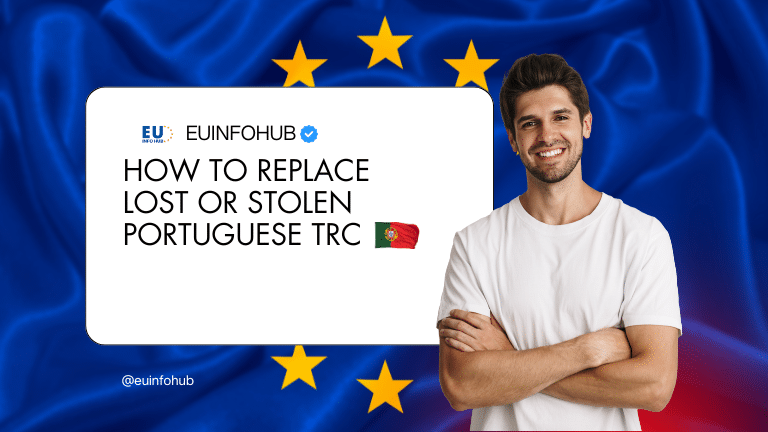Do you dream of earning a master’s degree from abroad, but are deterred by the high costs? You are not alone. Like many other international students, your question is, “How do I get quality education without loans or financial burdens?”
The good news is, there are handful of scholarships and funding opportunities in Europe to make studying abroad possible and even free!
In this blog, we will discuss the most popular scholarships, for example, the Erasmus+ scholarship master’s, and cover everything else you need to know about how to finance your studies in Europe. So, let’s get into the topic.
Why Study in Europe?
Europe is one of the most famous destinations for international students seeking to study master’s programs. It has some of the finest universities where students enjoy vibrant settings and meet people from diverse backgrounds. It has become a special destination for all who desire quality education, rich culture, and experience without breaking their bank.
Moreover, it has multiple scholarships and funding options available. So, go ahead and chase your dreams without thinking too much about money!
Check out the ultimate guide to student life in Europe.
Top 10+ Scholarships and Funding in Europe for International Students
Europe provides numerous scholarships and funding options that enable studying abroad to be budget-friendly and attainable. Here are some key scholarships available for international students who wish to study in Europe.
Erasmus Mundus Scholarships
The Erasmus Scholarship Master’s is among the most esteemed and competitive scholarship opportunities in Europe. It allows international students to participate in an Erasmus Joint Master’s Degree (EMJMD) program across two or more European universities.
Erasmus+ offers fully funded master’s programs that enable you to study in multiple European countries. It includes all expenses from tuition to travel and living costs, while providing you with an international experience
Pros
- Covers tuition, travel, insurance, and a monthly living stipend
- Opportunity to study in multiple countries
- Builds global networks and international exposure
Cons
- Highly competitive
- Requires an excellent academic background and a motivation letter
Applications Open
Usually between October and January each year for courses starting the following September.
Countries
Courses are offered across various European countries, including France, Germany, Spain, Sweden, and others.
Stipendium Hungaricum (Hungary)
This scholarship provides complete tuition, a monthly allowance, and additional living expenses for undergraduate, graduate, and doctoral students in Hungary. It is perfectly suited for students from associated nations and is readily accessible at public universities.
Pros
- Full tuition fee waiver
- Monthly stipend to cover living expenses
- Accommodation support or allowance
- Health insurance included
Cons
- Highly competitive application process
- Limited to specific partner universities and programs
Applications Open
Usually between January and February for programs starting in the autumn.
Countries
Hungary, across many public universities.
DAAD Scholarships (Germany)
DAAD offers full or partial tuition support, a monthly stipend, and insurance coverage to international master’s and PhD students. It’s perfect for those looking to continue their education at German public universities, many of which offer free tuition.
Pros
- Full or partial tuition coverage
- Monthly stipend to support living costs
- Travel and health insurance included
- Germany offers free education abroad at many public universities, especially for master’s degrees
Cons
- Very competitive, requiring strong academic records
- Application requirements can be complex
Applications Open
Varies by program, mostly between October and April.
Countries
Germany, across a wide range of universities and disciplines.
If you’re planning to study in Germany, check out German student visa requirement guide.
Swedish Institute Scholarships (Sweden)
This program offers full scholarships for master’s degree students, including tuition costs, living expenses, and travel fees. It’s a great chance to study in Sweden while engaging with global specialists.
Pros
- Covers tuition fees, monthly living allowance, travel grant, and health insurance
- Provides access to high-quality Swedish universities
- Encourages cultural exchange and international networking
Cons
- Very competitive selection process
- Requires strong academic records and motivation
Applications Open
Typically, from December to February each year for programs starting in the autumn.
Countries
Available for studies in Sweden across multiple universities and disciplines.
Eiffel Excellence Scholarship Programme (France)
Funded by the French government, this scholarship provides master’s and PhD students with a monthly stipend and additional benefits, but does not cover tuition costs. It facilitates education at leading French universities.
Pros
- Monthly allowance up to €1,200
- Covers return airfare, health insurance, and cultural activities
- Access to prestigious French universities
Cons
- Does not cover tuition fees
- Highly selective and competitive
Applications Open
Usually during the fall, deadlines vary by university.
Countries
Available for study in France at many top universities.
VLIR-UOS Scholarships (Belgium)
VLIR-UOS is among top scholarships and funding opportunities in Europe. These scholarships are available to students from select developing nations and cover full tuition, living expenses, and travel costs. Their emphasis is on areas such as development, sustainability, and technology.
Pros
- Full tuition waiver
- Monthly allowance
- Travel and insurance costs covered
Cons
- Limited to students from specific countries
- Programs mainly focused on development sectors
Applications Open
Varies by program, often between January and March.
Countries
Belgium, primarily in universities that offer development-oriented courses.
Netherlands Fellowship Programmes (NFP)
This scholarship, now part of the Orange Knowledge Programme, supports mid-career professionals from specific countries. It includes tuition, cost of living, and travel for short courses or master’s programs.
Pros
- Full tuition coverage
- Living allowance
- Visa, insurance, and travel expenses included
Cons
- Only for professionals from selected countries
- Highly competitive application process
Applications Open
Generally opens in late autumn and closes by early spring.
Countries
Netherlands, across multiple universities offering diverse programs.
Swiss Government Excellence Scholarships (Switzerland)
This grant supports doctoral and postdoctoral scholars by providing a monthly stipend, travel funds, and health insurance coverage. It’s ideal for students conducting research at Swiss universities.
Pros
- Monthly stipend
- Tuition coverage at public universities
- Health insurance and airfare included
- Strong focus on research opportunities
Cons
- Limited to doctoral and postdoctoral levels
- Highly competitive and research-focused
Applications Open
Varies by country, usually in the first half of the year.
Countries
Switzerland at top research universities.
Austrian Development Cooperation Scholarships (Austria)
Targeted at students from developing nations, this scholarship includes tuition fees, a monthly stipend, and travel expenses. It’s accessible for particular initiatives such as sustainable development and technology.
Pros
- Covers tuition fees
- Monthly allowance
- Travel allowance included
Cons
- Limited to students from developing countries
- Programs focused on specific fields
Applications Open
Deadlines vary, often in the early part of the year.
Countries
Austria, at selected universities.
Finnish Government Scholarship Pool (Finland)
The Finnish government scholarship pool assists doctoral candidates from outside the EU with expenses for living and relocation. Although master’s programs may have costs, numerous universities provide partial financial support.
Pros
- Monthly stipend
- Relocation costs covered
- Access to quality Finnish universities
Cons
- Mainly for doctoral candidates
- Tuition fees apply to many master’s programs without scholarships
Applications Open
Varies, mostly early in the year.
Countries
Finland, across various universities.
Czech Government Scholarships (Czech Republic)
Available to students from developing nations, this scholarship provides complimentary tuition, a monthly allowance, and health coverage. It’s an excellent option for cost-effective education at Czech public universities.
Pros
- Free tuition
- Monthly living allowance
- Accommodation and health insurance provided
Cons
- Limited to developing countries
- Most programs in the Czech language require language study.
Applications Open
Usually, in the spring.
Countries
The Czech Republic, mainly public universities offering free master’s in Europe.
Be sure to make the most of these amazing scholarship and funding opportunities in Europe to turn your study abroad dreams into reality.
Scholarships and Funding in Europe – Final Words
That’s all you need to know about scholarships and funding options in Europe. Studying in Europe need not be a costly affair. By seeking scholarships and fundings in different European countries, you can get quality education for free. The Erasmus Joint Master Degree, DAAD, and Eiffel Excellence Scholarship are among the best scholarship that can help students access quality education.
So, what are you waiting for? Start researching, explore your options, and take the first step toward your dream European university. Your future is waiting, get it now!
FAQs
How can I afford a master’s degree abroad without taking loans or burdening my family?
Seek out different scholarship and funding programs such as the Erasmus Joint Master’s Degree, DAAD, and various governmental scholarship options. These typically include tuition, living expenses, and travel costs.
Are there truly scholarships and funding for international students in Europe?
Yes! Countries such as Germany, the Czech Republic, and Hungary offer free or low-cost education at public universities, including for international students. You may still need to cover living expenses, but many scholarships also help with these costs.
How can I secure a scholarship like the Erasmus Joint Master’s Degree?
To secure an Erasmus scholarship for a master’s program, you must demonstrate solid academic performance, provide an impressive motivation letter, and have relevant experience. Demonstrate your enthusiasm and explain how the program aligns with your objectives; this is what sets an application apart.
What are the best affordable universities in Europe for international students?
Best Affordable universities for international students are TU Munich (Germany), Charles University (Czech Republic), and University of Szeged (Hungary). These institutions provide quality education at low tuition rates, ideal for students mindful of their budgets.
Which countries offer free or highly subsidized education?
Countries such as Germany, Austria, Norway, and the Czech Republic are recognized for offering free education to international students. Public universities in that area frequently have no or minimal tuition costs. You will still have to plan for living expenses, which differ by country.
How much will it cost to live in Europe as a student?
Costs of living differ. Countries such as Hungary, Poland, and the Czech Republic are budget-friendly (€500–€800/month), whereas Scandinavia and Switzerland are more expensive. Scholarships such as Erasmus typically provide a monthly allowance to assist with your expenses.















